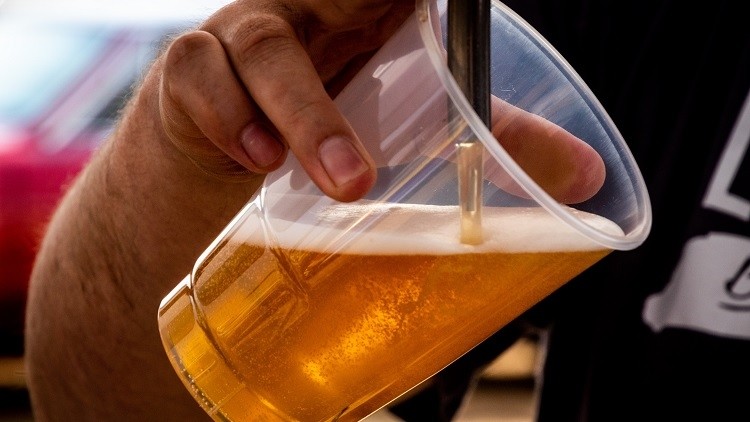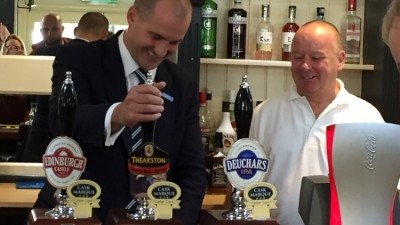Pubs could face severe workforce hit

Reacting to the Migration Advisory Committee’s (MAC) report into EEA migration (European Economic areas) released on 18 September, UKH has warned that the recommendations would undermine the hospitality sector.
The report recommends making it easier for highly skilled workers to migrate to the UK than lower-skilled workers, no preference for EU citizens and abolishing the cap on 'Tier 2' migrants.
An employer of more than 3m people and a contributor of £39bn per year to the public purse, the hospitality sector would struggle to provide jobs and maintain the current level of experience provided to consumers under the recommendations, according to UKH.
Acute concern
UKH chief executive Kate Nicholls said: “The report states that there is no way to change the migration system without creating winners and, ultimately, losers.
“There is acute concern from this industry – which is a huge employer and significant part of the UK economy – that a new system that does not take into account the fundamental challenges being faced by in the sector will only ensure that businesses, their employers and customers are the losers.
“We have a world-class hotel, hospitality and eating-out market in the UK, but it is under significant pressure from mounting costs, a shortage of workers and economic uncertainty.
“This sector must not be overlooked in the UK’s departure from the EU, otherwise there is a very real risk of tangible and long-term damage to a sector that employs 3m people and generates a lot more than £350m a week to the public purse.
“The sector invests significantly in its domestic workforce, employing over 2m British workers and providing jobs in every region.
“We are very proud to offer opportunities, training and careers to UK employers and there are plans to use T-levels and apprenticeships to continue to boost our domestic workforce.
“The MAC report acknowledges the ongoing need for medium and lower-skilled workers but this cannot be met domestically.”
Disappointing and illogical
Nicholls added: “We are forecast to have 200,000 fewer 18 to 24-year-olds by 2020, who were born in the UK, so we have a labour shortage in hospitality, where young workers make up half the workforce.
“Some 90% of our jobs are not covered by the current visa regime. The reality is that the hospitality sector workforce needs supporting with additional non-UK nationals and many of them will be from the EU.
“It is disappointing and frankly illogical to see the MAC report place too much emphasis on the economic worth of individuals, rather than the wider benefits they bring to the UK.
“If preference is given to high-skilled workers from outside of the UK, then hospitality businesses will struggle to fill vacancies, investment will dwindle and businesses will suffer.
“Ultimately, we will all lose because the guest experience will also suffer.”
Impact on customers
Nicholls commended the expansion of the Youth Mobility Scheme, describing it as a "welcome first step", but highlighted that this needed to be a far greater focus, and with a wider scope of ages.
She added: “Widening of the Tier 2 visa to incorporate more occupations can help, but there is still concern that smaller businesses will be deterred. It is crucial that EU migration policy is factored into a future trade deal with the EU, for the benefit of Britain, the EU and all citizens.
“Any negative impact on hospitality businesses’ ability to employ is ultimately going to be felt by customers on high streets around the UK.
“We will be making these points to the Government, highlighting the dangers of a future immigration system that is disproportionately restrictive towards lower-skilled workers who are vital to the ongoing success of the hospitality sector and the wider UK economy.”
BBPA response
Brigid Simmonds of the British Beer and Pub Association (BBPA) has however issued a largely positive response to the MAC report.
She commented: “We broadly welcome the MAC report and the evidence it provides that migrant workers play an important role in the UK economy, without having a major effect on the employment of UK workers.
"Increased productivity is vital to the economy and the MAC report acknowledges this, as does the Government’s Industrial Strategy.
"With this in mind, we’d urge the Government to support the proposed Tourism Sector Deal and its emphasis on skills, which the BBPA is prepared to back with financial contributions if the Government supports it.
“We have previously called for a review of the Tier system and welcome the proposal from the MAC that the Tier 2 visa bracket be expanded to cover a wider range of occupations.
"However, we have serious concerns about retaining the salary cap of £30,000 as pub chefs, who are very much in short supply within our sector, would in many cases not meet the cap.
"Nonetheless, the proposal to reduce the qualifications for the Tier 2 visa bracket from RQF6 to RQF3, which would consider the experience offered by pub chefs, rather than just qualifications, is most welcome.
“It is good that the MAC report has recommended that the administrative burden of the Tier system be reviewed for SMEs. No small pub could take on the current sponsorship requirements as they stand, let alone the cost and bureaucracy that currently goes with it."
Still need for recognition
Simmonds added: “Whilst broadly welcoming the recommendations of this latest MAC report, we still feel that the MAC does not recognise the important role of the hospitality industry in the UK and the serious issues that migration caps will bring to the sector.
"On average, as many as 24% of workers in pubs are from overseas – rising to as much as 80% in some urban areas – meaning that any cap which does not recognise the deficit in talent will cause hardship for pubs and could ultimately lead to more closures.
"This is why we continue to call for the extension of the Youth Mobility Scheme, which allows young people up to the age of 30 from a prescribed list of countries to work in the UK for up to two years.
"Considering some 42% of employees in pubs are under the age of 25, extending the Youth Mobility Scheme to the whole of the EU is most welcome, as has already been proposed in the Chequers Agreement.
“We look forward to building on the MAC report in our discussions with the Government, but would urge more emphasis on the requirements for soft skills, which are so vital to the pub sector and contribute to the multi-faceted nature of our society and communities.”
The MAC report can be found here.







